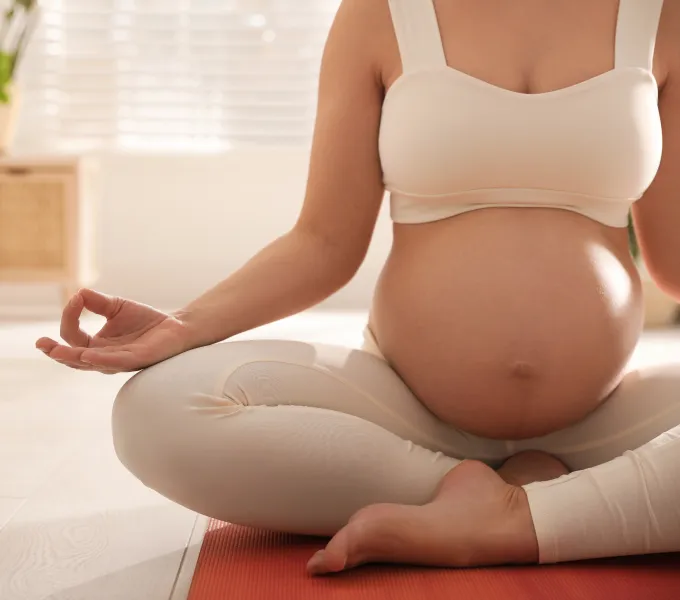
Pregnancy and Physical Therapy
Building strength during pregnancy
At Origin, our goal is to help you prepare for pregnancy with confidence and strength. If you are pregnant, your body is going to change dramatically during those forty weeks of gestation. Your blood volume will increase by nearly 50%, your internal organs will become displaced, your rib cage circumference will expand up to 6 additional centimeters, your pubic symphysis may widen up to 7 additional millimeters, your lumbar spine curve will become exaggerated, and your breasts will enlarge. These are just a few examples of the differences you can expect to notice. It is no wonder that many women will experience a broad range of symptoms, aches and pains throughout this time.
There is no experience in life comparable to the physical feat that the female body must endure during pregnancy. As with training for any physical endeavor, such as a marathon or the Olympics, one of the most meaningful things you can do to face these challenges head on would be to improve the health, strength and endurance of your body.
However, as recently as 1985, the American College of Obstetricians and Gynecologists was encouraging women to stringently limit their exercise during pregnancy in order to minimize maternal and fetal risk. Since then, elements of this philosophy and subsequent stigma continue to exist, in spite of the fact that research has shown, time and again, the benefits of exercise for both the pregnant woman and her fetus are invaluable and undeniable.
Exercise during pregnancy is linked to appropriate infant birth weights, improved ability to self-quiet as a newborn, and long term health benefits and disease prevention for the offspring. Maintaining exercise throughout pregnancy is also linked to decreased maternal weight gain, reduced incidences in gestational diabetes, hypertension, and depression, and fewer cesarean deliveries.
How does physical therapy help during pregnancy?
The physical therapists at Origin understand the changes occurring within your body, they know the importance of maintaining function and reducing pain amid these changes, and they are prepared to work with you as a part of your healthcare team in order to keep exercise an integral component of your pregnancy.
If you are experiencing pain, Origin’s physical therapists can help provide relief with hands on soft tissue mobilization, exercise prescriptions developed around your specific needs, and comprehensive postural reeducation to address your body changes. Aches and pains during pregnancy are certainly common, but they should not be constant and they should not be considered "normal." Speak with your physician if you have pain to determine if our team of trained physical therapists may be the right solution for you.
If you are not currently experiencing pain, but instead looking to kickstart an exercise program, modify one that you're currently using, or receive guidance to build upon the progress you've already made, the team of physical therapists at Origin is committed to help you achieve your goals.
Finally, if you are nearing delivery and simply interested in learning more about how to prepare for a healthy labor, birthing positions, pelvic floor muscle downtraining or perineal massage, our therapists are prepared to be a resource for you throughout your journey. Every pregnancy is different, so whatever your needs or goals, the physical therapists at Origin are here to support you during this incredible stage of your life.
Additional Reading and Sources
- Balasundaram, A. P., Robinson, H. S., & Balasundaram, A. P. (2017). Effectiveness of physical therapy interventions for pregnancy-related pelvic girdle pain (PEDro synthesis). British Journal of Sports Medicine, bjsports–2017–098287. doi:10.1136/bjsports-2017-098287.
- Barakat, R., Refoyo, I., Coteron, J., & Franco, E. (2018). Exercise during pregnancy has a preventative effect on excessive maternal weight gain and gestational diabetes. A randomized controlled trial. Brazilian Journal of Physical Therapy. doi:10.1016/j.bjpt.2018.11.005.
- Clapp, James F., and Catherine Cram. Exercising through Your Pregnancy. Addicus Books, 2002.
- Haakstad LAH, Voldner N, Bo K. Pregnancy and advanced maternal age-The associations between regular exercise and maternal and newborn health variables. Acta Obstet Gynecol Scand. 2019 Sep 26.
- Santos-Rocha, R. (Ed.). (2019). Exercise and Sporting Activity During Pregnancy. doi:10.1007/978-3-319-91032-1.
- Sobhgol, S. S., Priddis, H., Smith, C. A., & Dahlen, H. G. (2018). The Effect of Pelvic Floor Muscle Exercise on Female Sexual Function During Pregnancy and Postpartum: A Systematic Review. Sexual Medicine Reviews. doi:10.1016/j.sxmr.2018.08.002.
- Stephenson, Rebecca G., and Linda J. O'Connor. Obstetric and Gynecologic Care in Physical Therapy. SLACK, 2000.




